I'm using a model created by sequelice-cli, but when I use it, I get an error message.
I am using an ORM (sequelize) and when I try to access the methods of the model, for example finOne(), findAll(), update(), it does not recognize it and throws an error, I already tried in another way that it works, but it does not is the right one, I am using sequelize-cli to generate the models
I need your help please!!!
This is my model:
'use strict';
const {
Model
} = require('sequelize');
module.exports = (sequelize, DataTypes) => {
class scholarship_student extends Model {
/**
* Helper method for defining associations.
* This method is not a part of Sequelize lifecycle.
* The `models/index` file will call this method automatically.
*/
static associate(models) {
// define association here
}
};
scholarship_student.init({
id: DataTypes.INTEGER,
name: DataTypes.STRING,
last_name: DataTypes.STRING,
status: DataTypes.ENUM("Activo", "Inactivo")
}, {
sequelize,
modelName: 'scholarship_student',
});
return scholarship_student;
};
and this is my controller
const becadosController = {};
const db = require("../models/index");
const validation = require("../validation");
const scholarship_student = require("../models/scholarship_student");
becadosController.get = async (req, res) => {
await scholarship_student.findAll()
.then((student) => {
res.json(student);
})
.catch((err) => {
console.log(err);
res.sendStatus(500);
});
};
the error:
